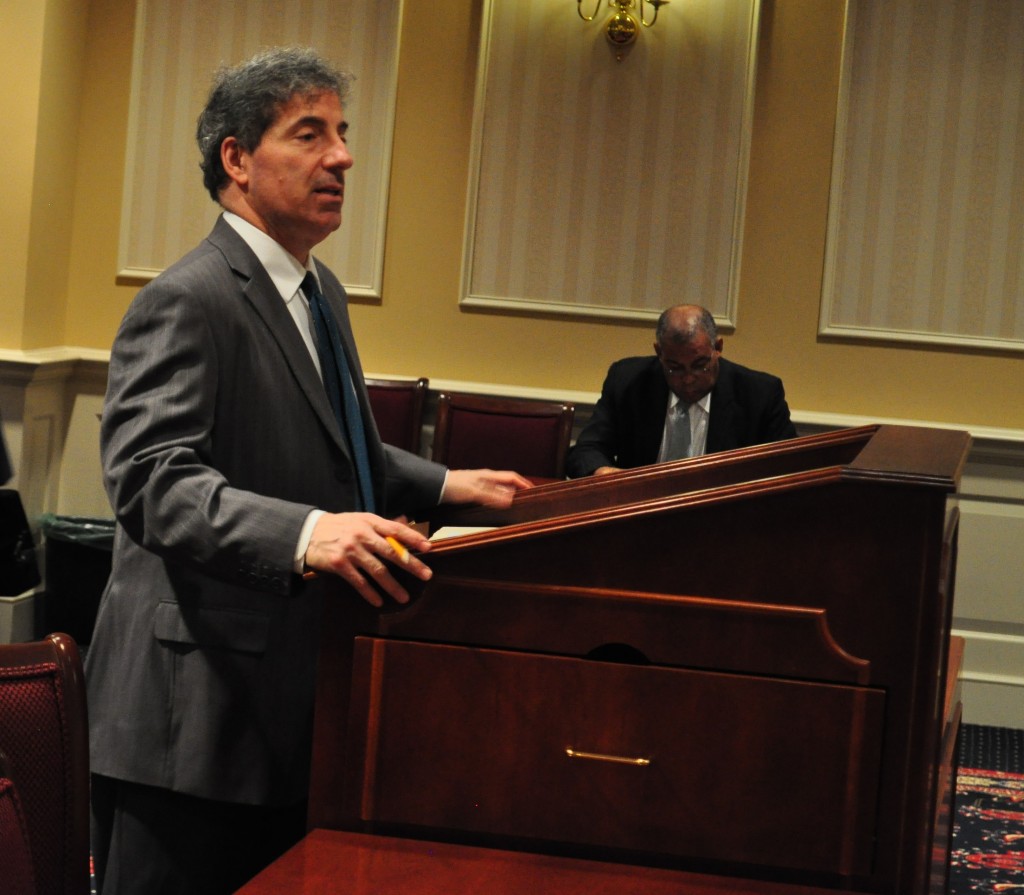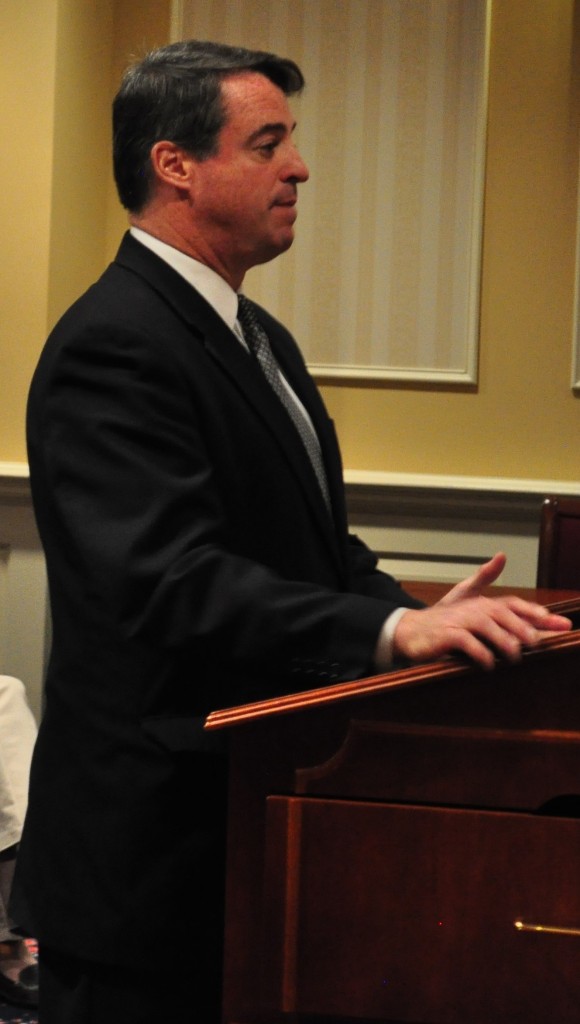‘Second chance’ bill shields some convictions from job screening
By Jeremy Bauer-Wolf
Baltimore native Davon Neverdon says he sees ex-convicts in his city fall into a vicious cycle. Acquitted of a murder charge in 1993, Neverdon was charged again in 1995 for drug possession.
After that, he said the job he could land with an $8 hourly wage at Under Amour can’t sustain him and his five children.
Neverdon trekked to Annapolis Tuesday to support legislation meant to offer a lifeline to individuals with a criminal record — those who might have been convicted in their early years, but have found their conviction follows them late in life and prevents them from securing a job.
“Right now a person with a good college degree can’t even get a good job,” Neverdon said. “When a person goes out into the world with a record, it’s setting them up for failure.”
Covers nonviolent misdemeanors
Sens. Jamie Raskin, D-Montgomery, and Verna Jones-Rodwell, D-Baltimore City are championing SB 1056, which would allow individuals to petition that their convictions for an array of nonviolent misdemeanor charges eligible be shielded from public scrutiny.
Dubbed the Maryland Second Chance Act of 2014, the bill says that following a period of three to five years, depending on the crime, an individual could submit a petition to a court.
An individual could only invoke the Second Chance Act once. If they re-offend during the three-to five-year waiting period, their conviction would not be shielded.
Eligible offenses include disorderly conduct, disturbing the peace, failure to obey a lawful order, malicious destruction of property (under $500), trespass, driving without a license or while uninsured, drug possession, and misdemeanor theft (under $1,000).
The petition would also be forwarded to the state’s attorney, who could object within 30 days and schedule a subsequent court hearing. The court must also alert the victims of each individual case, who may provide additional information to the court if they wish.
“We don’t think they’ve done something that justifies a life-long ‘Scarlet Letter’ on them, and ropes them off from all of the possibilities,” Raskin said.
Attorney general, City Council president favor the bill
Neverdon said that his drug charge, like violent crimes and domestic-related incidents, doesn’t qualify under the proposed law. But he still sees the benefits.
“I hear the cries of the felon that can’t get a job, I see them going to prison,” he said.
Attorney General Doug Gansler and Baltimore City Council President Bernard “Jack” Young were among those who testified in favor of SB 1056 at Tuesday’s hearing in the Senate Judicial Proceedings Committee, as well as for the House equivalent, HB 1166, sponsored by Baltimore City Democrat Del. Curt Anderson.
“[There’s] an urgency and need for this bill,” Gansler said.
Gansler and Young cited the high recidivism rate, and Young said he fields phone calls every week from constituents, who say they are discriminated against.
City council approves local bill
The Baltimore City Council also approved local legislation Monday along the same lines, a “ban the box” bill that forbids potential employers from inquiring about an applicant’s criminal record until after an interview.
The proposed Maryland Second Chance Act carries a stipulation that employers cannot refuse to hire a potential employee based on his or her shielded convictions — an employer can ask about the conviction, but cannot exclude an individual because of it, according to Caryn York, a policy associate at nonprofit Job Opportunities Task Force.
An employer guilty of violating this provision could be charged with a misdemeanor and a fine of up to $1,000 — one of the reasons representatives of the business community generally opposed the bill.
“It’s a protective mechanism,” York said.
Law enforcement objects
The Maryland Sheriffs’ Association and Maryland Chiefs of Police Association also opposed the bill, though law enforcement and employers who have a contractual obligation to conduct a background check could still access the shielded records.
“Generally speaking, law enforcement is opposed to shielding and expungement legislation because it could interfere with the necessary access to prior criminal information,” the associations said in written testimony.
Sen. Jones-Rodwell testified that the bill would benefit struggling Marylanders in a down economy, and provide them a chance to impress potential employers without their criminal records tarnishing their interviews.
Jones-Rodwell was a member of the governor’s Task Force On Prison Reentry, whose final report was the basis for the bill, first introduced last year. During last session’s debate, Sen. Christopher Shank, R-Washington, a member of the Senate committee, said that the committee members and partners in the bill hammered out what crimes were eligible under the bill.
The task force’s sweeping recommendation was that all nonviolent misdemeanors and felonies be shielded, a suggestion that was pared down during last year’s session.
“This bill is really designed so that they are not going to be hammered with their past mistakes,” Jones-Rodwell said during the hearing.

MarylandReporter.com is a daily news website produced by journalists committed to making state government as open, transparent, accountable and responsive as possible – in deed, not just in promise. We believe the people who pay for this government are entitled to have their money spent in an efficient and effective way, and that they are entitled to keep as much of their hard-earned dollars as they possibly can.


